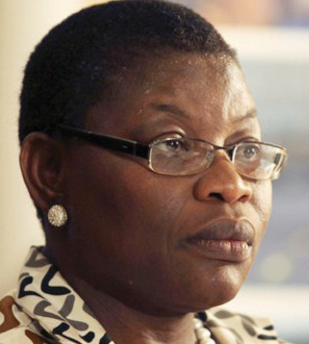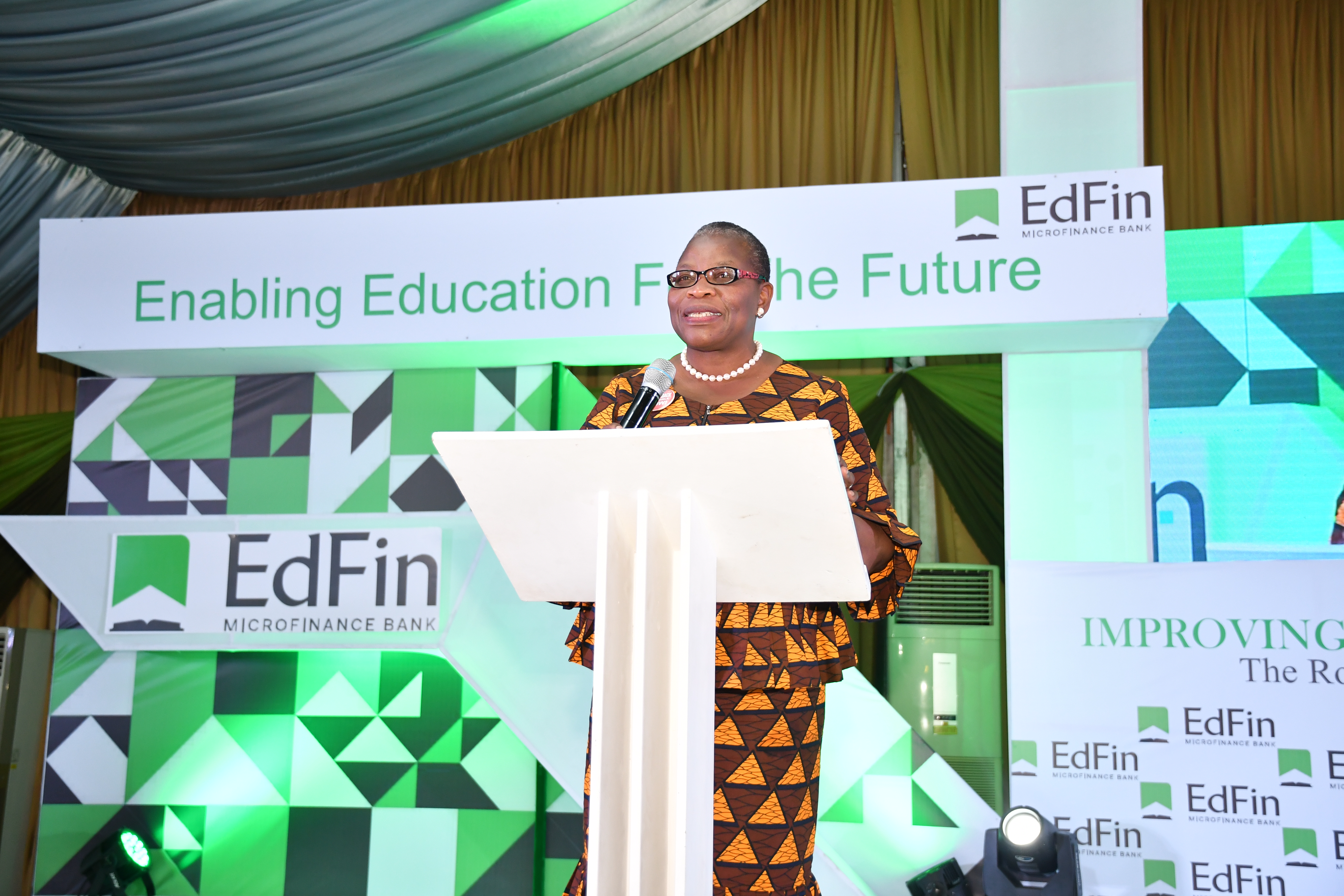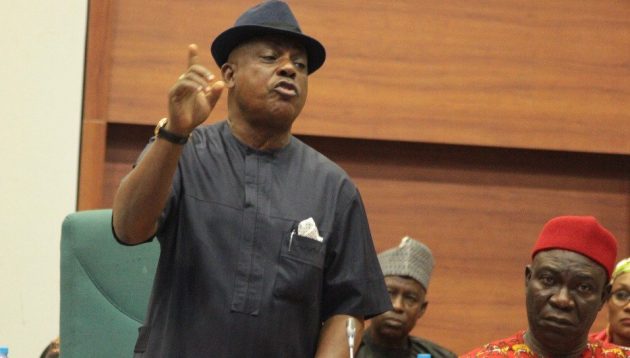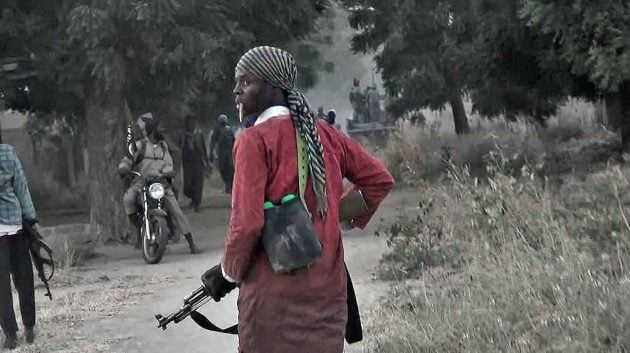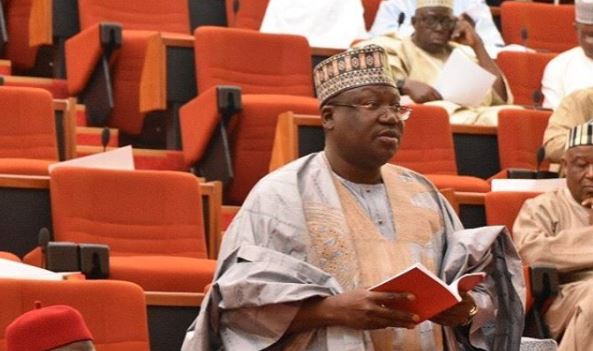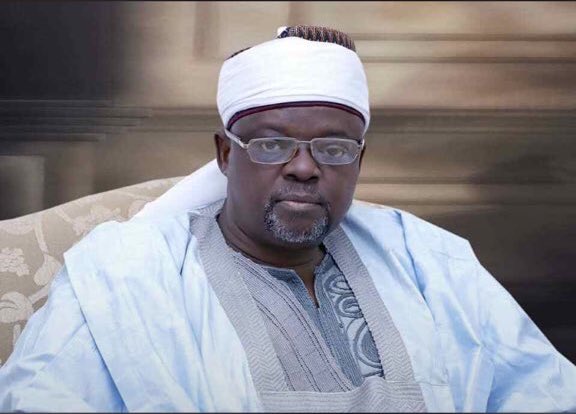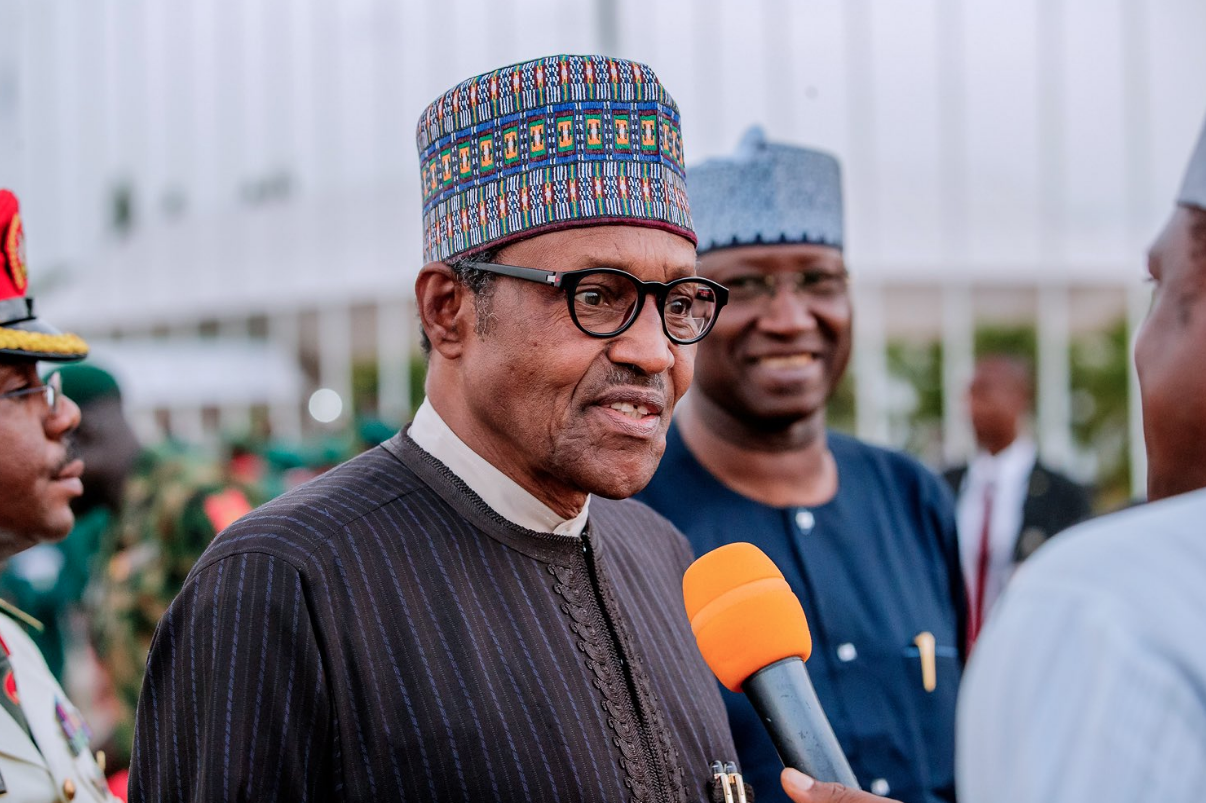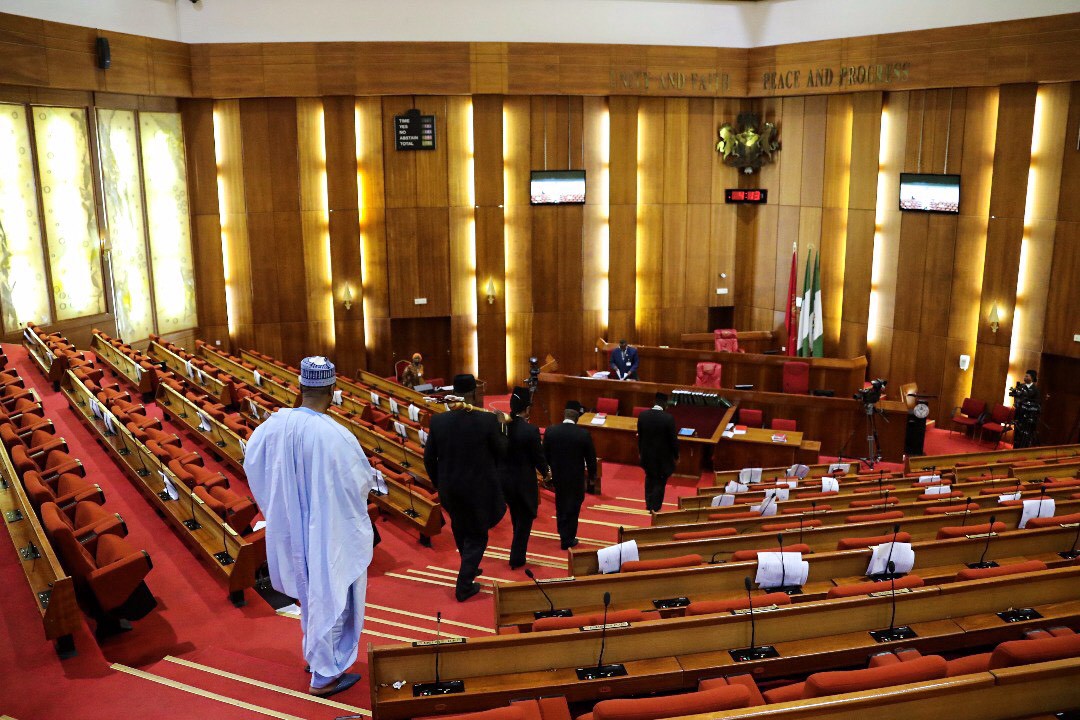I must say that Bunmi Lawson is someone that I appreciate among the young generation of Nigerian women who do a lot in their various spaces. Bunmi ran FATE Foundation and moved on to run ACCION Microfinance Bank through which she achieved a lot in financial inclusion and now, she is the pioneer in the sector of education finance and every time I see people like you, I like to celebrate.
I was excited about looking at the panel. I was listening to Bolaji totally gingered. She was an incredible member of my education reform team in those days and everything that we did, constructing the solution as far as innovation enterprise institutions and vocational enterprise institutions. She led that aspect of the work. We did so much in connecting the work of education to economy; ensuring that the private sector is auditable of everything we taught about education seeing that they, ultimately, are the recipients of our products.
How about Folashade, it was amazing to listen to you; still angry about the things that are not yet done and making a case for public education. This is a country that is rich in intellect. Anyone that sees a country that has cumulative intellect as we saw from that panel should know that we have no reason to struggle. The unfortunate thing with us is that the capacity to connect our solutions has eluded us but I am hoping that the products of a better run education system will get to the place of attaining dispersion of adaptive leaders. When people become adaptive leaders, they change the world. We need those kinds of leaders in our nation and the only way to produce them is through education. An education, not of the ordinary type or the anyhow type. Education that focuses on two major pillars; relevance and quality. These are so important for the transformation of nations. Folashade said education used to be the way you squashed poverty but that is not true; it still is. There is nowhere in the world that empirical evidence does not show us how climbing out of poverty is not related to education. If you want to improve the economic and social mobility of your people, you do it through education.
Second is that we now know what is work most in education. A major issue that we are still grappling with is teacher quality. As soon as education collapsed in our country, the lowliest of barrel became the ones that first elected to go into education. Why should that be so? And the qualified teachers are being held down by a failing system. No society properly so-called races to the bottom, we must constantly be a society that races to the top. What is it that EdFin coming into this space helps us to achieve? It helps us to achieve the transition that many countries have been grappling with which is that there is a cost to education, no matter how you wish it away. What happens in the economics of education is an understanding that the most important foundational level of education; early childcare which we know is absolutely important. At the World Bank, we found from studies that children who have early childcare education, what we call nursery, kindergarten. Children who have the opportunity to have this end up giving a 20-year gap in income to those who do not get it. So it gives the children a headstart in life. Often, it is the middle class that is able to offer early childcare education to their children. The ones who need a headstart, even more, are the children in the poorer segment of the society. Unfortunately, we do not have publicly funded systems of early childcare. Interestingly, there have been innovations in that space so that shared approach where community and government partnerships have enabled some levels of early childcare solutions that address the needs of the poorer segment of the society; an indication that through social enterprise, we can solve that particular problem of many children left out of early childcare education.
Advertisement
Early childcare education, primary education and secondary education are tied to the matter of inclusion in the society and every society must work towards inclusion and equality of opportunity for the people. If we going to achieve equality of opportunity, the cost for education as it concerns early childcare education, primary education and secondary education; the primary funder is the government. We can not, simply because we believe in the market, say that education will be financed by the private sector. However, in the provision of basic and secondary education, there is a place for the market. That place for the market needs to be better regulated and opportunities need to be available for families that choose to pay for the services of that segment. What you are doing is not just financing that segment of the market, it is also going to be being the champion of the conversation around how do you regulate and ensure that the quality in terms of the pricing and the output is up to global standards.
My third point is that tertiary education is closest to the market than any other level of education. Once you get a tertiary education, you are already preparing yourself for the market. With basic education and secondary education, society gains more from the level of knowledge that you have acquired and so paying for it by society is not at all a bad idea. When it gets to tertiary education, the person who is acquiring that tertiary education is the one who is going to get extra benefit from that kind of education. Therefore, there is a matter of how do you share the cost of getting a tertiary education. Unfortunately, our own society did not come to the understanding that even that kind of financing for tertiary education does not have to be a problem. It cannot be that because people are unable to find money, they can’t go to university.
You must have a solution that the pricing of education does not get taken down to the level where it cannot sustain quality. That is what’s going on now.
Advertisement
We are taking down tertiary education to a level where a person is comfortable to pay almost N500,000 for the children in a top secondary school but once the children go into the university, their parents are ready to join them to protest about the pricing of university education. In the process of doing that, you are compromising quality and relevance.
So what is it that you do in other to realign the situation? What you do is to ensure that those who have the capacity to pay should pay the right price for tertiary education and for those without the capacity to pay, edu-finance and a subsidy from the government that is well designed will come to ensure that they are not left out of education. That way, you ensure that everyone gets the opportunity of quality education.
My final point is that we are no longer talking about brick and batter education in the world. Some of you who are establishing schools to teach children, it would be a shame if you teach children who enter the warehouse and don’t come out of it. Children that go through your school system are like a product. When a product is produced, it goes to the market. When a product is produced and it stays in the warehouse for a long time, it will expire.
Today’s world is a world where people will easily give you an assessment of your school so your sustainability strategy has to be to get your school to catch up with the kind of skills and knowledge that the world is looking for today. Do you know that no matter what age category your school caters for, the people that they are competing with are not their fellow children in Nigeria or West Africa? They are competing with the rest of the world so it’s a global level competition. The quality of what you teach must reflect that because ultimately, those products of your school contribute to the sustainability of your school.
Advertisement
One of the things that we are seeing now is that the virtual economy has completely taken off. Do you know that there are many Nigerian children who are living in this country and their work is somewhere in the cloud? Based on the type of education they have acquired, they are part of global project teams and earning big money while sitting somewhere in Akure or Nnewi. You’ve got to realign the content of education and public policy.
I remember the great support that DFID gave to my team when we were in government. They made it possible to have people who sat with me in order to design the kind of education reforms that we need. It is easy for development partners to find a new fad that they run after but the way DFID has persisted in supporting education is wonderful. The education information management system that took off when I was the minister of education in order to anchor everything that we do on data came as a result of the partnership. The support concerning education has to be in a way that we can achieve scale especially by ensuring that those who demand quality and relevant education are not sleeping; hoping that some messiah will come. The parents, teachers and people interested in issues of education constitute the largest constituency of people in this country. Should you act together, education will change. We need to build a massive constituency for education reforms.
Our country is in trouble because education is in crisis. A decade plus ago, I told the mission that if we did not address the crisis in education that in a matter of years. In fact, my prognosis at that time was that by 2020 that we will produce the most hardened criminals. It was at a public presentation.
There are people who called me to say ‘you said 2020, it happened earlier than that’.
Advertisement
We cannot sleep on education and those of you that are sitting here, don’t swallow your voice. Your voices are to demand better performance of the education system. People think that it is about throwing money at the problem. As minister of education, I said the problem in education is not about funding. If you fund a dysfunction well, you will get a well-funded dysfunction.
We must correct the structural issues, then we get a system. When you get a good system and you put money in it, you will get spectacular learning outcomes.
Advertisement
I thank you Bunmi and your colleagues for the opportunity of being here and discussing education with all of you. We must remember that we owe our children a better quality of life than we currently can give them and the way to ensure that is ensure that no child is left behind in our country, no child. Every child must get the opportunity to be the best that they can be. Our innovators are in the poorer regions of this country but we haven’t given them that kind of attention that they should get. It behoves you and I to be outside of ourselves. What does it profit a man or woman to get the whole world and then lose their souls. We’re losing our souls everyday in this country when we watch children who simply because of their poor circumstances don’t get the benefit of an opportunity. Let’s stop the nonsense and let’s get going as a people to make sure that the poorest segment of our society can quickly get the opportunity to be the best that they can be, thank you very much.
Advertisement
Add a comment
